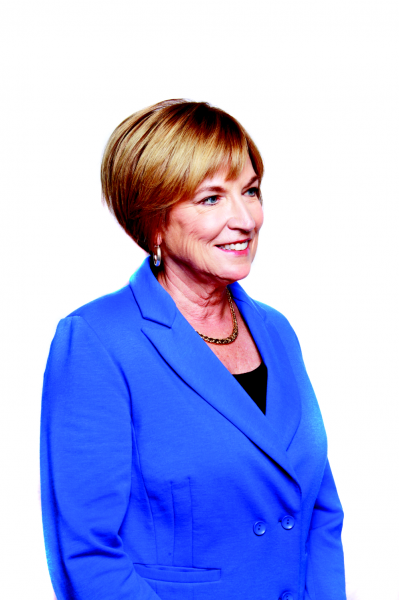Fight for 19

Candidate:
Kurt Schaefer
Senate District: 19
PARTY:
Republican
THE PROBLEM:
State and local infrastructure throughout Missouri is aging and in need of repairs, expansions and updates.
THE SOLUTION:
Raise money for these repairs by passing the Fifth State Building Fund.
THE DETAILS:
Senate incumbent Kurt Schaefer shares the priority of investing in state infrastructure with House incumbent Chris Kelly. Both candidates support the Fifth State Building Fund, which they have tried to pass before.
Although Schaefer believes in supporting higher education with the bond, he also wants to invest in state-owned parks and mental health facilities and help cities and counties update water treatment systems.
“I think the bill is one tool among many that allows us to create an infrastructure environment that allows for private sector growth,” Schaefer says.
In previous efforts to pass this legislation, Kelly introduced a bond for $500 million to fund new buildings at MU and other state colleges. In the Senate, Schaefer raised that total to $800 million to cover other state facilities.
With the previous major opponents term limited and interest rates at historical lows, Schaefer says that 2013 is the time to leverage Missouri’s AAA bond rating.
“What that bond rate gets are the most favorable terms on borrowing money,” Schaefer says. He adds that having reliable public infrastructure, such as sewer systems, is imperative to attracting major manufacturing jobs.
“Are you going to build a plant where you know you’re going to be maxing out your sewer capacity in five years or somewhere it will last for 50 years?” Schaefer asks.
COLUMBIA REACTS:
Dan Kliethermes has owned Kliethermes Homes and Remodeling for 35 years, and he says that over the years he has sometimes borrowed money to pay for expenditures and saved money to pay for projects or expansions. He prefers to save money and avoid borrowing when he can; however, he thinks the university has contributed a lot to the community, and if it needs investment to keep up with growth, then borrowing might make sense.
“Yes, if there is something we really need do to that would bring in new business and new companies and give local companies new opportunities, then yes, we should borrow the money,” Kliethermes says.
But he cautions against getting the state too far into debt and says working toward a surplus that could be used to pay for later projects would be a good goal.

Candidate:
Mary Wynn Still
Senate District: 19
PARTY:
Democratic
THE PROBLEM:
Missouri tax credit programs have grown more than 400 percent while Missouri’s revenue has grown 13 percent. Tax credits cost Missourians $521 million in 2010. In 2012, state legislators struggled to balance a budget running about $500 million short. Ideally, tax credits are like investments that pay for themselves and even generate revenue over time, but in Missouri they might not all be working effectively. Some aren’t being used, some cost the state more than they return and some have unintended consequences.
THE SOLUTION:
Follow the recommendations of the governor’s bipartisan Tax Credit Review Commission to revise Missouri’s tax credit programs.
THE DETAILS:
In its review of 61 programs, the task-force calculated that, if implemented, its recommendations could save Missouri $220 million in tax credits, which means $220 million more in the state budget. The recommendations include eliminating or not renewing 28 programs, modifying 30 programs to improve the cost-to-benefit ratio, placing limits on the tax credits authorized by each program and developing a buyback program at less than face value for unused and unexpired credits.
The group recommends not renewing the Self Employed Health Insurance tax credit because the structure of the program benefits higher-income individuals more than those with lower incomes. They provide suggestions for rewriting the program to prioritize helping lower-income people afford health insurance. They estimate that eliminating the program will save $1.4 million.
The recommendations for economic development programs include a mix of lowering thresholds so more businesses can take advantage of programs, eliminating some programs so they can be consolidated in broader-reaching programs and simplifying processes.
“Some of these programs work and create jobs, and creating jobs is one of the best ways to support the University of Missouri,” Mary Wynn Still says. “So we have to be careful not to detract from those programs.”
COLUMBIA REACTS:
Mike Brooks, president of Regional Economic Development Inc., says economic development tax credits are imperative to bringing new business and new jobs to Columbia.
“Certainly economic development depends on tax credits to bring new economic projects and ensure that the state continues to enhance and provide tax credits that bring jobs and investment,” Brooks says.
He adds that economic development tax credits are just one type, and he cites affordable housing and historical preservation as other examples, but Brooks says he thinks the tax credits are worth the effort.
“For example, we’ve made a great deal of effort for the Enhanced Enterprise Zone tax credit to provide opportunities to compete for manufacturing jobs,” he says. “If it wasn’t important, we wouldn’t do it.”


